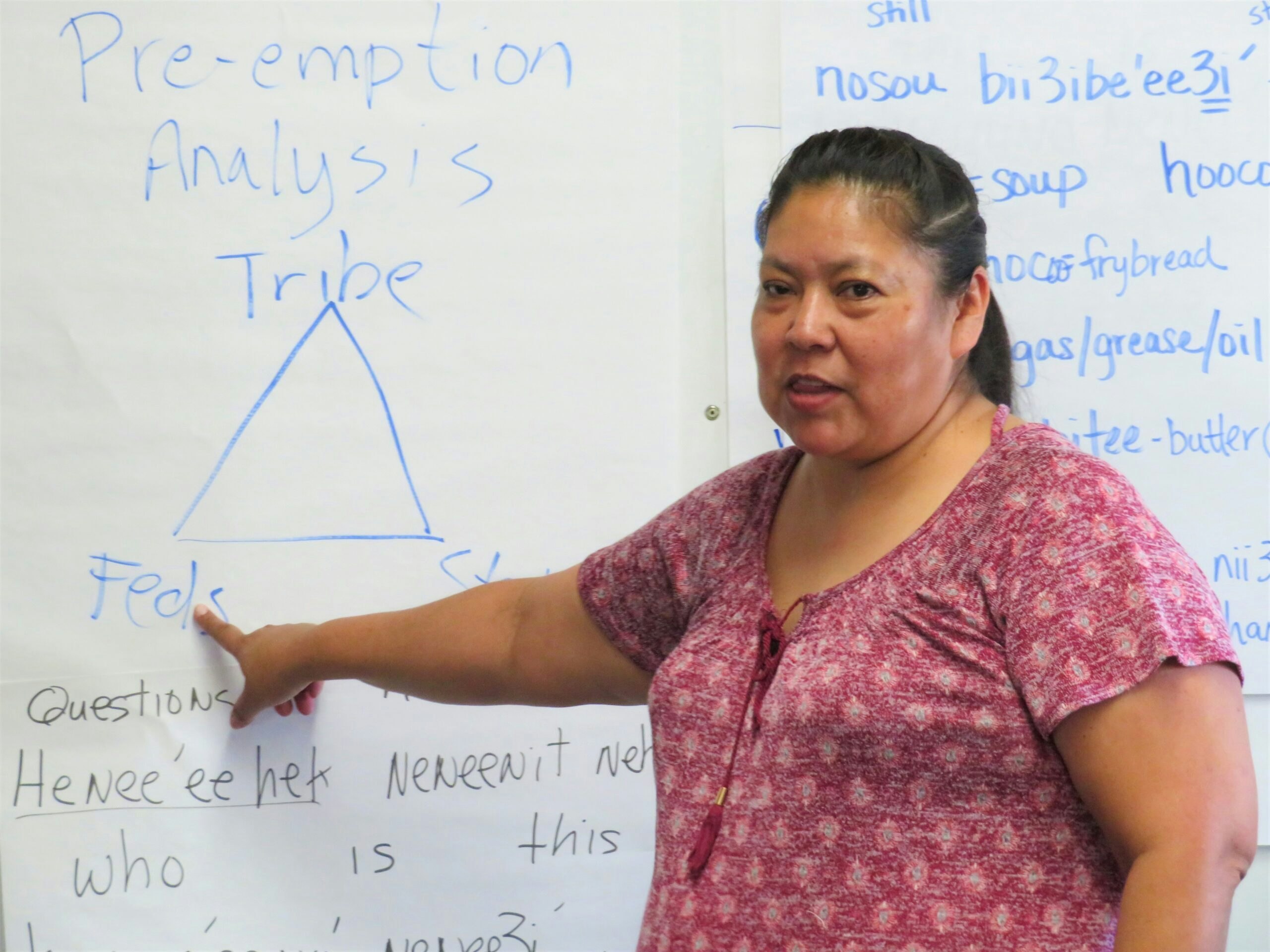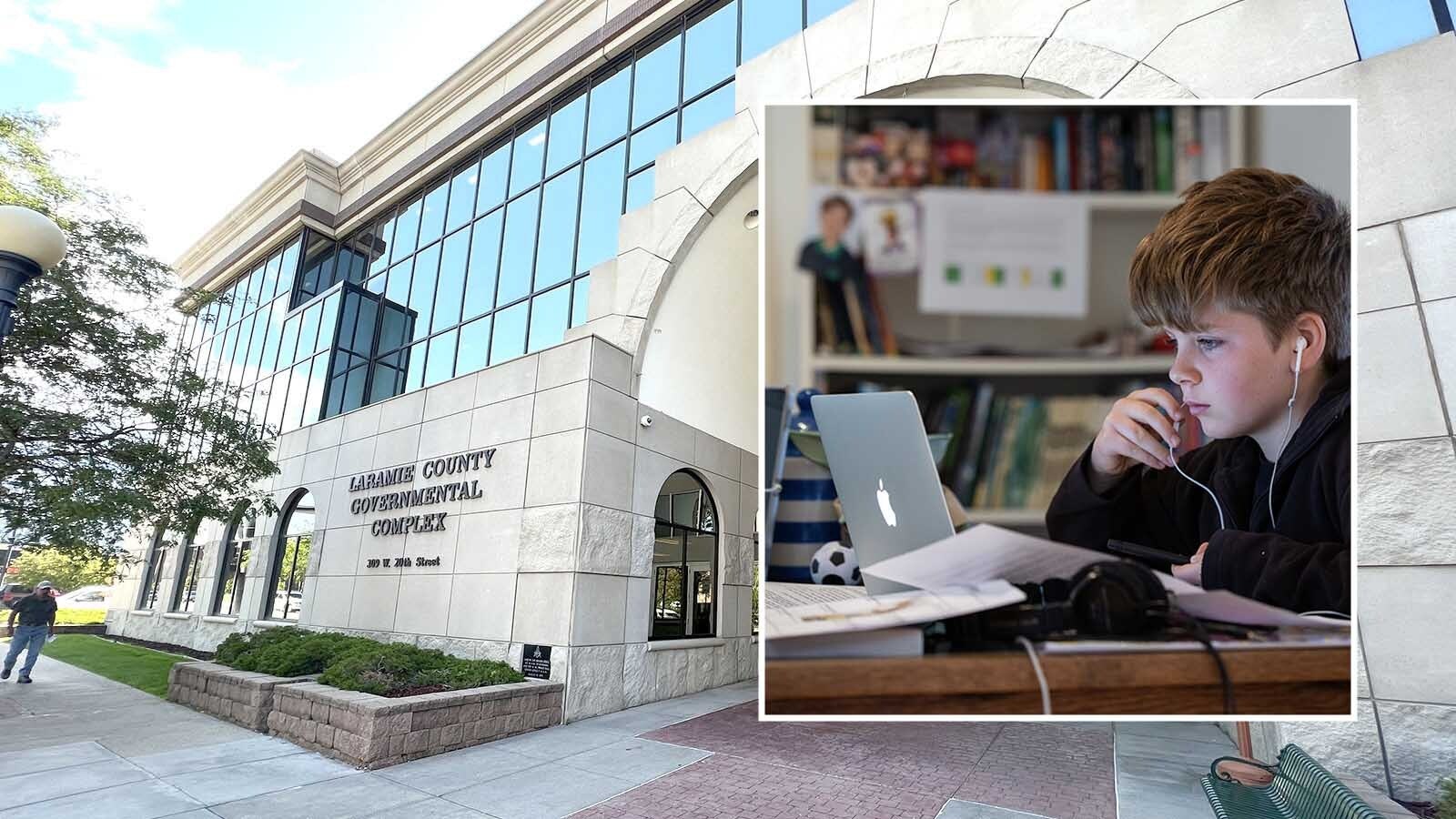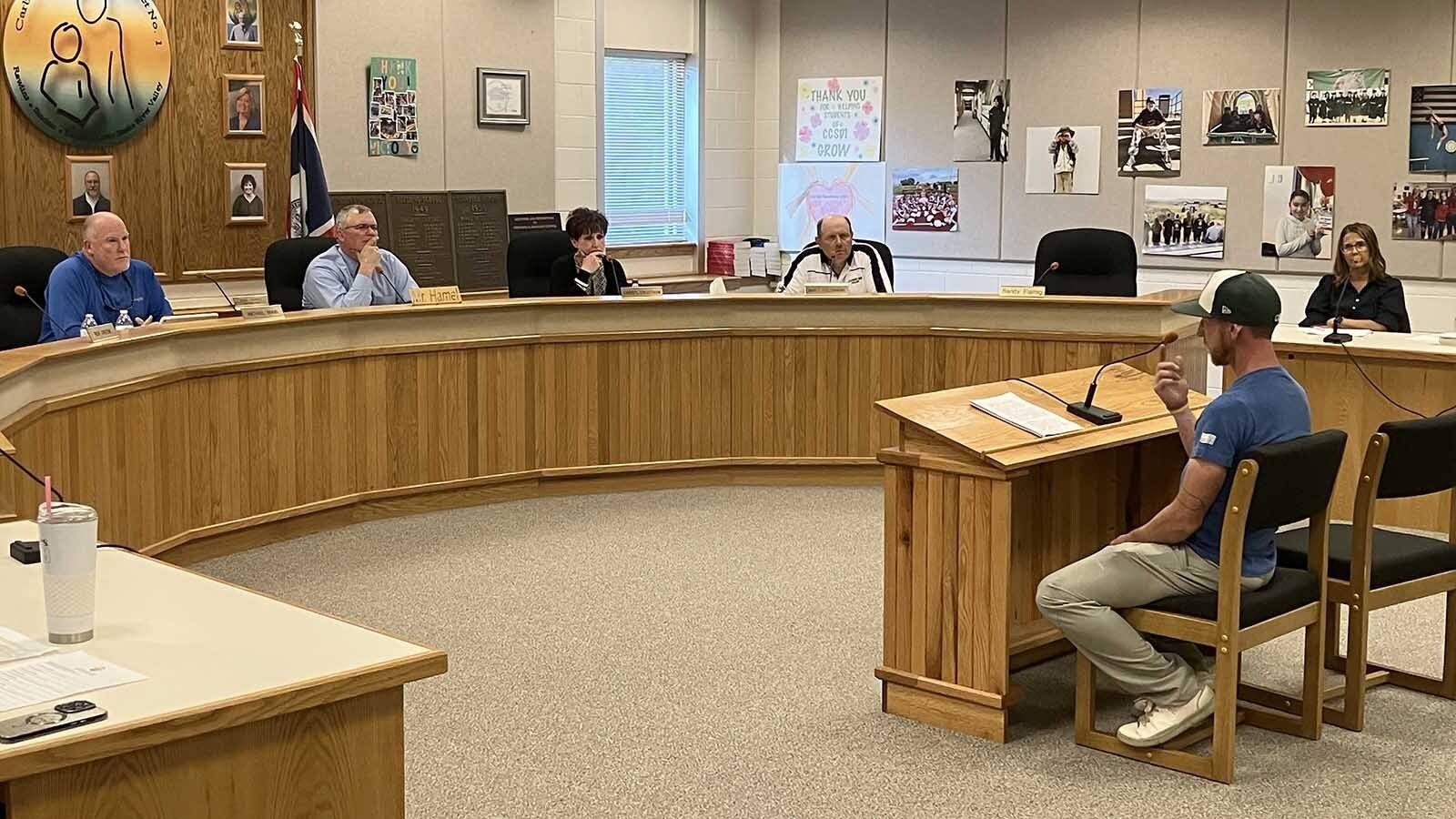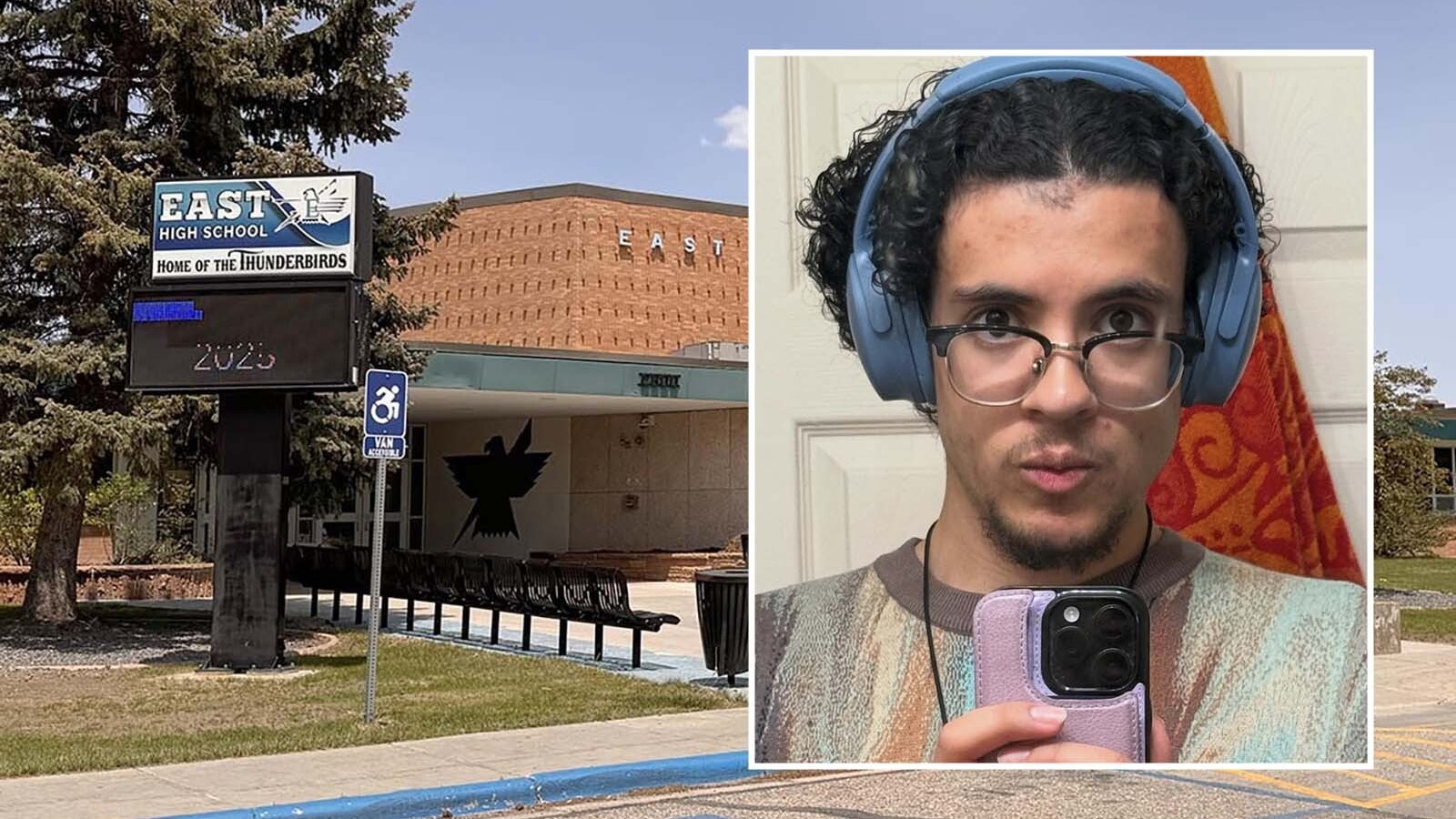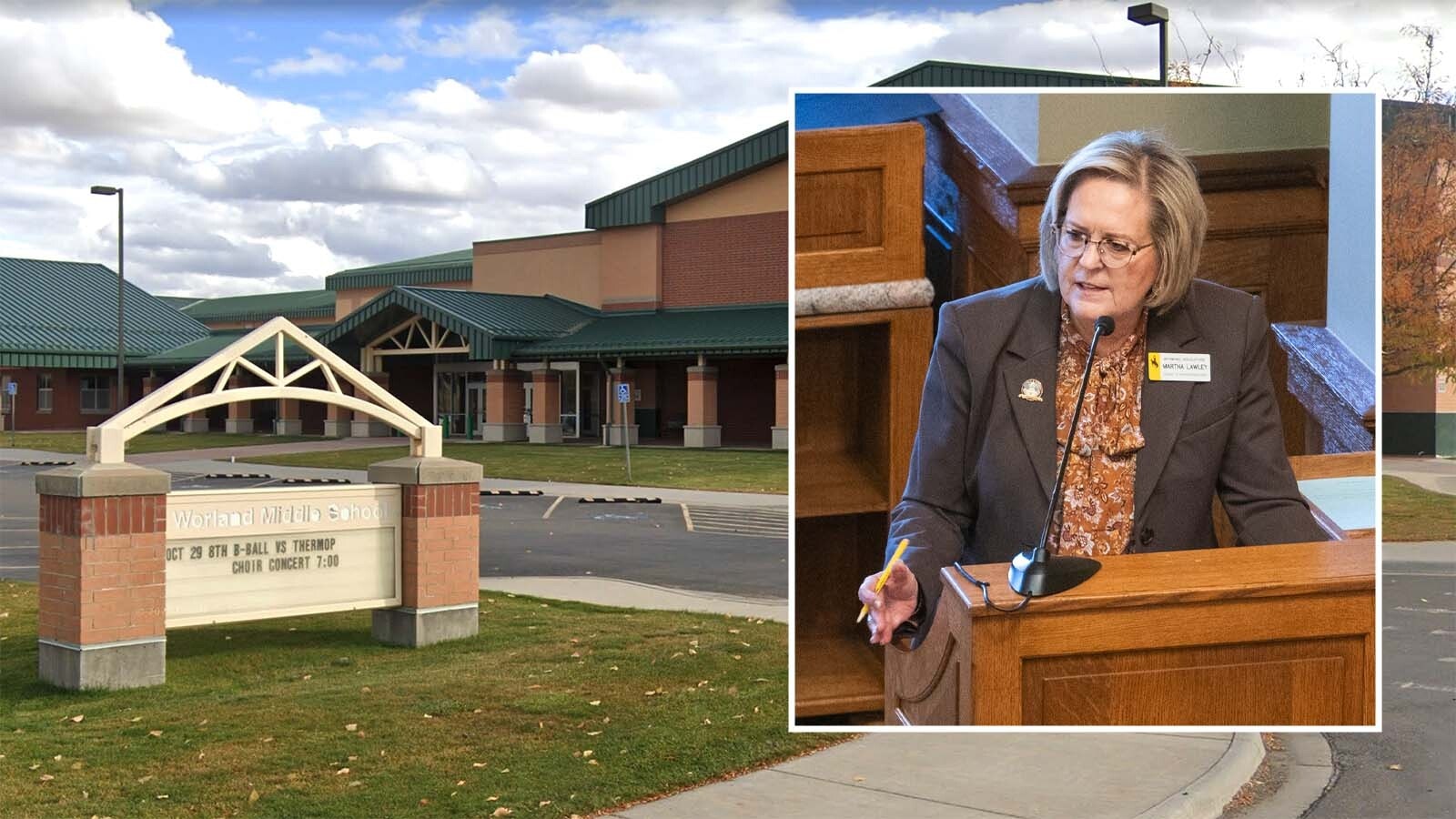A four-year bachelor’s degree program at Central Wyoming College is close to becoming reality, thanks in part to the Northern Arapaho and Eastern Shoshone Tribes.
Courses in the college’s new bachelor’s of applied science program are expected be available next fall to all of its students, assuming the program wins accreditation approval of the Chicago-based and peer-reviewed Higher Learning Commission.
The new bachelor’s program in organizational management and leadership would be part of CWC’s partnership – called CWC-Wind River — with the Wind River Reservation tribes to offer college courses in Ethete and Ft. Washakie, as well as on the college’s Riverton and Lander campuses.
CWC and the tribes signed agreements this year to enable students to earn first-year CWC credits toward degrees while attending classes on the reservation, with the courses offered in a face-to-face environment at tribal facilities.
This fall semester, CWC is offering reservation-based courses on intercultural communication, American Indians in contemporary society, Indians of the Wind River and federal Indian law, among other introductory courses.
Tribal support of CWC-Wind River hinges on the college’s site-based effort to bring at last 30 credit-hours of classes of its current associate’s degree program to reservation-based classrooms.
“I’m so excited for these joint ventures and the partnerships with the tribes. Offering first-year college classes on the reservation will help many tribal members advance their lives and have additional employment opportunities,” said CWC President Brad Tyndall.
“This is a unique partnership. We are respecting the sovereignty of both tribes. We are making sure they have a big voice, and we are sharing costs, revenues and the design and delivery of courses on the reservation,” Tyndall said.
Tarissa Spoonhunter has worked as a college instructor on the Wind River Reservation since 2004. An enrolled Northern Arapaho member who also holds master’s and doctoral degrees from the University of Arizona in Tucson, Spoonhunter remembers CWC’s initial efforts toward offering a reservation-based bachelor’s degree program about 15 years ago.
“It’s always been about creating opportunities for people who can’t leave the reservation or the area, and how can we empower people with tools to make good decisions on behalf of the tribes,” said Spoonhunter.
“I’ve never met a person who regrets or who is disappointed after earning a college degree,” added Spoonhunter, who leads CWC’s American Indian Studies Program. “I’m starting to see people see the value of education. Education brings opportunities. When you don’t have education, you get stuck in situations.”
Spoonhunter said the proposed bachelor’s degree in applied science is being designed to include job skills for people “to work anywhere on or off the reservation.”
“Graduates will have a skill set to get a job in today’s world,” she said. “This ‘applied’ degree will focus on issues that apply to life here, such as natural resource management, business and leadership.
“This degree will be key for people working in tribal programs, casinos and in business,” Spoonhunter continued. “It will provide tools to make good decisions, especially as it relates to nation building, and anyone who has a business relationship with the reservation.”
Spoonhunter grew up on the Blackfeet Indian Reservation near Browning, Montana, and she recalled the benefits of bachelor’s degree programs being offered at Blackfeet Community College in Browning.
“Accommodating reservation people has paid off there,” she said. “More teachers have been trained and for the first time in history, the school superintendent and all seven school principals are Native American. And it all started with educational agreements to bring programs to the people.”
The proposed bachelor’s of applied science degree program is “very much a workforce degree,” according to Mark Nordeen, dean of Arts and Sciences at CWC and the college’s lead contact in the CWC-Wind River.
“This proposed degree would provide the next level of skills and leadership that our students with associate degrees need to take a bigger role in their careers in our communities,” he said.
CWC’s bachelor’s degree would include two areas of emphasis, tribal leadership and business/entrepreneurship.
“For us, it’s quite simple. We have hundreds of people in our community with associate degrees, and they want to advance in their careers and their lives,” Tyndall said.
Tyndall and Nordeen said about half of CWC’s students are enrolled in career and technical education (formerly called vocational) degree or certificate programs.
“Many of these students and graduates need organizational management and leadership training to step up and out of their current situations, and this flexible degree program would apply to students just out of high school, students with a degree from a community college, and people out there working in the world with, maybe, an associate’s degree in applied science,” Tyndall said.
College enrollment numbers support CWC’s effort toward offering the college’s site-based bachelor’s program for reservation and county residents.
In 2018-19, the last complete academic year at CWC, 2,618 students were enrolled in credit courses, said Louisa Hunkerstorm, CWC Director of Institutional Effectiveness. Of those, 250 students, or 9.5 percent, were American Indian.
CWC’s American Indian enrollment numbers are undoubtedly higher than 9.5 percent, because race and ethnicity disclosures are optional. But CWC’s 250 American Indian students in 2018-19 represent nearly half of the 553 reported American Indian enrollments at Wyoming community colleges.
CWC’s accreditation visit from the Higher Learning Commission to assess its readiness for the proposed bachelor’s program is scheduled for either December or January, Tyndall said.
This comes after the college gained approval over the last year from CWC faculty and trustees, the Wyoming Legislature and the Wyoming Community College Commission.
“This really is an economic development proposition,” said Tyndall. “About 70 percent of our high school graduates are moving out of the state. With this degree, a graduate could start his/her own company, or could bring value-added leadership to a business or government. Graduates would be equipped to thrive, and not just survive, in our communities.”
Nordeen said degree programs offered on the reservation will fulfill goals of the Northern Arapaho and Eastern Shoshone tribes, including “better educated people and broader educational backgrounds.”
“Seventy percent of CWC students are part-time, site-bound people, and the reservation is largely a site-bound community,” Tyndall said. “This new degree is not meant to hurt the University of Wyoming. Instead, it’s addressing the 70 percent of our community that is site-bound. As a community college, we want to build capacity in the community.”
Spoonhunter said the idea of an expanded knowledge base is vital in offering CWC degree programs, including the proposed bachelor’s program, on the Wind River Reservation.
“Degree programs are a tool to help tribal leadership, and to help the reservation,” said Spoonhunter, who believes education-based relationships could lead “to more ‘we’ conversations to help all Fremont County communities thrive in the future.”
“A lot more ‘we’ conversations than ‘we versus them’ conversations would benefit all of us,” Spoonhunter said. “Understanding the complicated relationship between the tribes and federal government is not only relevant to the reservation, but to everyone.”

